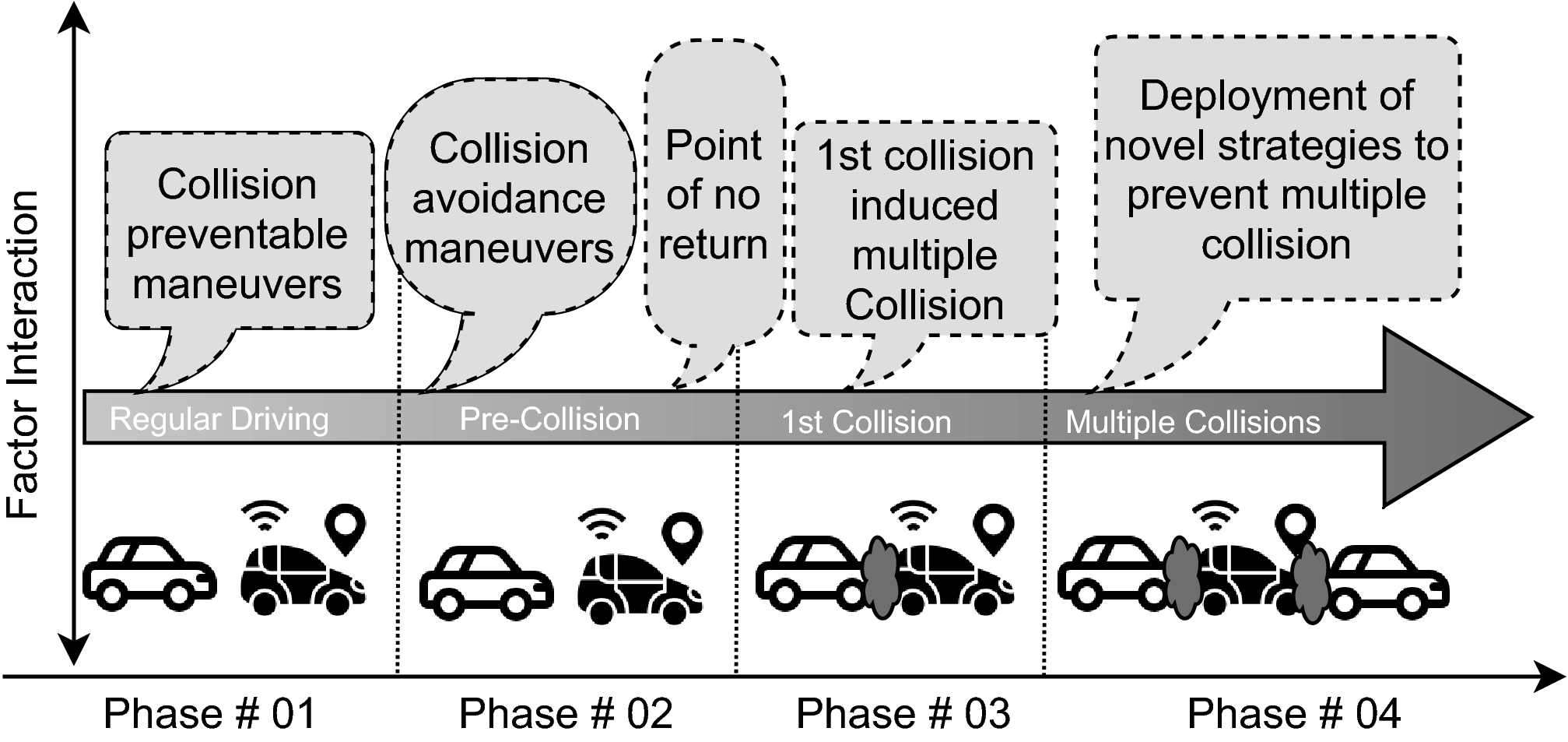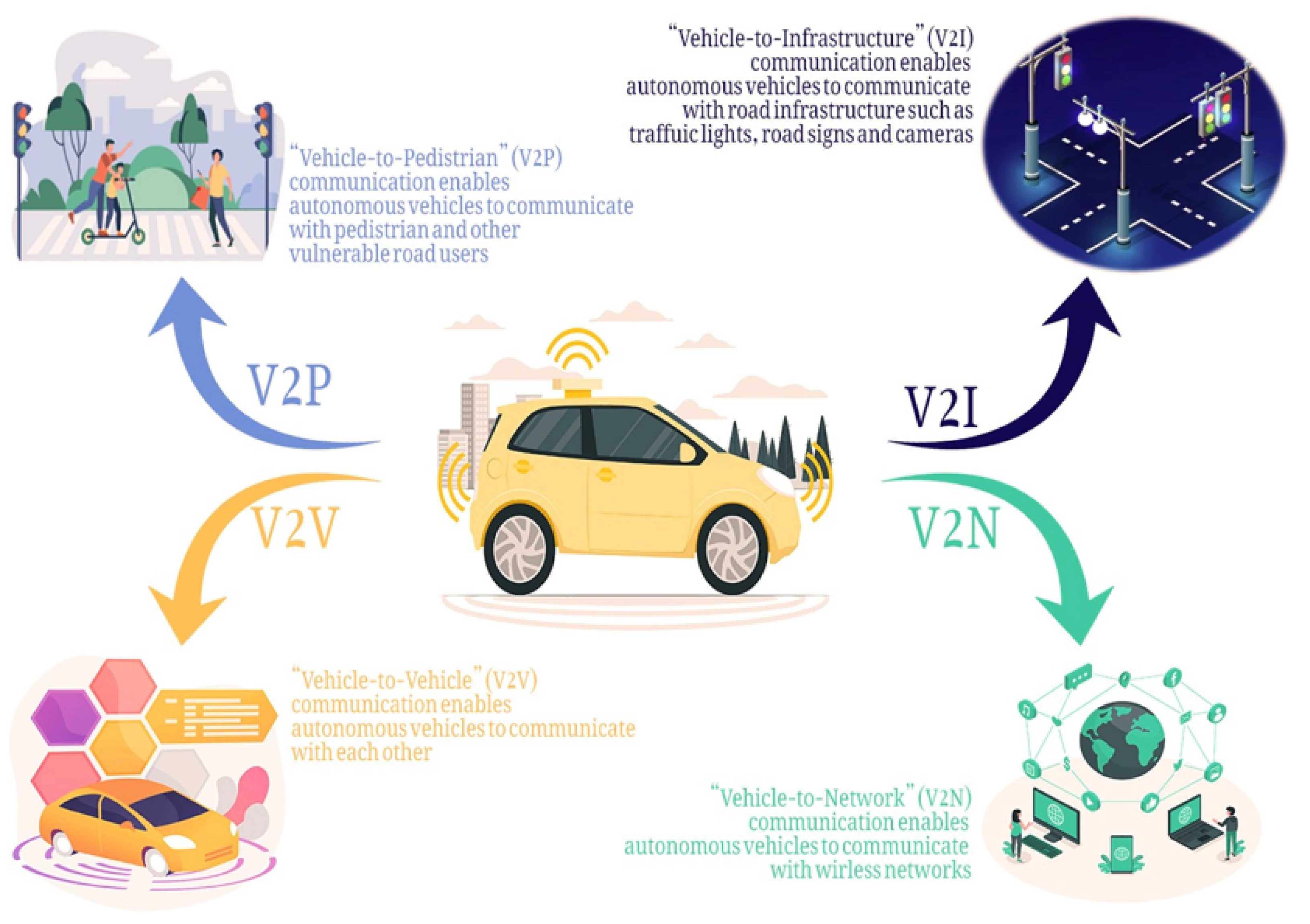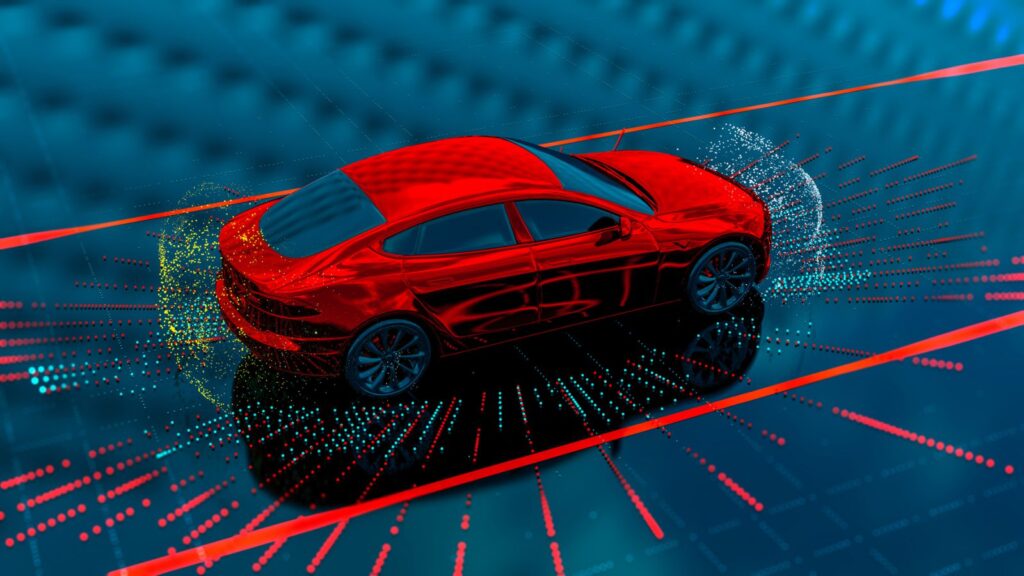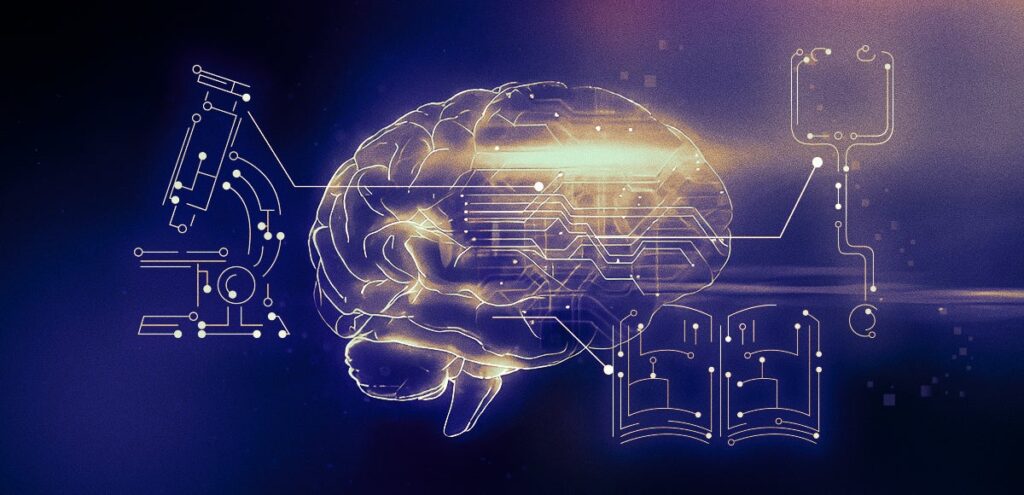AI Self Drive offers a revolutionary self-driving car experience, with cutting-edge technology that provides a safe and convenient way to travel. The autonomous vehicles feature advanced sensors and AI algorithms that ensure a smooth and efficient ride.
This review will delve into the various features and benefits of using AI Self Drive, uncovering the advantages of this innovative transportation solution. AI Self Drive is gaining attention as a leading player in the autonomous car industry, providing a glimpse into the future of mobility.
The convenience and safety offered by AI Self Drive’s technology have captured the interest of consumers and industry experts alike. As we explore the details of this self-driving experience, you’ll gain valuable insights into the potential impact and benefits of AI Self Drive’s innovative solution.

Credit: www.nature.com
Understanding Autonomous Vehicles
Autonomous vehicles, also known as self-driving cars, utilize AI technology to navigate without human input. In this Ai Self Drive Review, we explore the advantages, challenges, and future potential of these innovative vehicles.
Understanding Autonomous Vehicles Autonomous vehicles, or self-driving cars, represent a revolutionary advancement in the automotive industry. These vehicles utilize Artificial Intelligence (AI) and a complex network of sensors and algorithms to operate without direct human input. Understanding the level of automation and the benefits of self-driving cars is crucial as we navigate through this groundbreaking technology.Level Of Automation
In the context of autonomous vehicles, the level of automation refers to the extent to which a car can operate independently. The Society of Automotive Engineers (SAE) has defined six levels of automation, ranging from Level 0, where the vehicle entirely relies on the driver, to Level 5, where the vehicle operates without any human intervention.Benefits Of Self-driving Cars
Self-driving cars offer numerous advantages. Enhanced safety is one of the primary benefits, as autonomous vehicles have the potential to significantly reduce the number of traffic accidents caused by human error. They also provide increased accessibility for individuals who are unable to drive due to age or disability. Additionally, self-driving cars can lead to improved traffic flow and reduced congestion, contributing to a more efficient transportation system. Autonomous vehicles are paving the way for a future where transportation is safer, more accessible, and more efficient. It’s essential to stay informed about the capabilities and advantages of self-driving cars as we embrace this transformative technology.Evolution Of Ai In Self-driving Cars
When it comes to self-driving cars, the evolution of artificial intelligence (AI) has played a significant role in making autonomous vehicles a reality. The continuous advancements in AI have propelled the development of self-driving cars, making them safer and more reliable than ever before.
Early Attempts At Autonomous Vehicles
The early attempts at creating autonomous vehicles date back to the 1920s, with notable developments such as the first driverless car demonstrated at the world fair in New York. However, the technology was limited by the lack of advanced AI capabilities, resulting in these early attempts being far less sophisticated than modern self-driving cars.
Advancements In Artificial Intelligence
In recent years, significant advancements in artificial intelligence have revolutionized the self-driving car industry. Machine learning algorithms and deep neural networks have enabled vehicles to perceive, interpret, and make real-time decisions in complex driving environments. This has vastly improved the safety and efficiency of self-driving cars, bringing them closer to mainstream adoption.
Challenges And Limitations Of Self-driving Cars
Self-driving cars, powered by artificial intelligence (AI), hold great potential to revolutionize transportation. However, despite their promising prospects, there are several challenges and limitations that need to be addressed before fully autonomous vehicles can become a common sight on the roads. In this article, we will discuss the safety concerns and ethical considerations associated with self-driving cars.
Safety Concerns
One of the primary concerns surrounding self-driving cars is the safety aspect. Although autonomous vehicles are designed to prioritize safety, accidents can still occur due to technological limitations or unforeseen circumstances. For example, software errors or sensor failures can put occupants and other road users at risk. In addition, self-driving cars may face challenges in accurately detecting pedestrians, cyclists, and unpredictable road conditions. As these vehicles rely on data and algorithms, any bugs or vulnerabilities in the system can lead to serious safety implications.
Another safety concern is the potential cybersecurity risk. Connected self-driving cars are vulnerable to hacking and cyberattacks, which can have severe consequences such as unauthorized control of the vehicle or manipulations in the AI system. It is crucial for manufacturers to implement robust security measures to safeguard against these threats and ensure the reliability and integrity of self-driving cars on the road.
Ethical Considerations
In addition to the safety concerns, there are ethical considerations surrounding self-driving cars. One of the main ethical dilemmas involves decision-making in critical situations. When faced with an unavoidable accident, an autonomous vehicle must make split-second decisions to minimize harm. However, determining which course of action is morally acceptable is complex. For instance, should a self-driving car prioritize protecting its occupants at the expense of others’ safety? These ethical considerations raise questions about liability, accountability, and the values embedded in the AI algorithms that dictate these decisions.
Another ethical concern involves the potential impact of self-driving cars on employment. As automation advances, there is a risk of job displacement for professional drivers and related industries. The widespread adoption of self-driving cars could result in significant shifts in the job market and require retraining programs to help affected individuals transition into new roles.
Conclusion
While self-driving cars offer exciting possibilities, there are various challenges and limitations that need to be addressed to ensure their safe and ethical integration into society. This includes addressing safety concerns related to technological limitations and cybersecurity risks, as well as grappling with complex ethical dilemmas surrounding decision-making and potential job displacement. By carefully navigating these challenges, the future of self-driving cars can be maximized for the benefit of society as a whole.

Credit: www.techopedia.com
Current Innovations In Autonomous Vehicle Technology
Autonomous vehicle technology has seen significant advancements in recent years, with groundbreaking innovations that have brought us closer to a future where self-driving cars are a common sight on the roads. These advancements have been made possible by the integration of sensors and perception systems, as well as machine learning and deep learning algorithms. In this article, we will explore the exciting progress made in these two areas.
Sensors And Perception Systems
Sensors play a crucial role in gathering real-time data that helps autonomous vehicles navigate their surroundings efficiently and safely. These sophisticated systems utilize a combination of cameras, lidar, radar, and ultrasound sensors to detect and interpret signals from the environment.
Lidar sensors, for instance, use laser light to measure the distance between the vehicle and objects in its vicinity. By creating a detailed 3D map of the surrounding area, lidar helps the self-driving car accurately perceive its environment, identifying obstacles, pedestrians, and other vehicles in real-time.
Radar sensors, on the other hand, use radio waves to detect the presence and velocity of objects. They are particularly effective in adverse weather conditions, such as fog or rain, where other sensors might struggle.
In addition to these sensors, cameras provide another essential input for autonomous vehicles. With advancements in computer vision technology, cameras can now recognize and classify objects, traffic signs, and road markings. This enables self-driving cars to make critical decisions based on visual information, ensuring a safer driving experience for everyone.
Machine Learning And Deep Learning
To enable self-driving cars to learn and adapt to different driving situations, machine learning and deep learning algorithms are employed. These algorithms analyze the data collected from sensors, continuously updating and improving the vehicle’s perception of the environment.
Machine learning algorithms utilize statistical techniques to identify patterns in large datasets, helping the autonomous vehicle understand complex traffic scenarios and make accurate predictions. By learning from past experiences, self-driving cars can anticipate and respond to various challenges on the road, ensuring a smooth and safe journey for passengers.
Deep learning, a subfield of machine learning, has revolutionized autonomous vehicle technology. Inspired by the structure of the human brain, deep learning algorithms utilize artificial neural networks to process vast amounts of data and extract valuable insights. This enables self-driving cars to recognize and understand objects, predict behavior, and make informed decisions based on this information.
Overall, the current innovations in autonomous vehicle technology have paved the way for a future where self-driving cars can navigate roads with increasing safety and efficiency. This progress in sensors and perception systems, combined with the power of machine learning and deep learning, brings us one step closer to realizing the full potential of autonomous vehicles.
The Future Of Autonomous Vehicles
The development and deployment of autonomous vehicles have the potential to revolutionize the way we commute, travel, and transport goods. With advancements in Artificial Intelligence (AI) and machine learning, self-driving vehicles have become a reality. In this blog post, we will explore some of the potential impacts of autonomous vehicles on the transportation industry and their potential applications in various sectors.
Impacts On Transportation Industry
Autonomous vehicles are poised to reshape the transportation industry in numerous ways. Here are some of the key impacts:
- Increased Safety: With AI-enabled self-driving capabilities, autonomous vehicles can significantly reduce the number of accidents caused by human errors. They are programmed to obey traffic rules and respond to potential hazards swiftly.
- Efficient Traffic Flow: Self-driving cars can communicate with each other and navigate through traffic more efficiently. This can lead to fewer traffic jams, decreased travel time, and reduced fuel consumption.
- Reduced Operational Costs: Autonomous vehicles have the potential to reduce labor costs and increase operational efficiency. Companies can save on expenses such as driver salaries, insurance, and vehicle maintenance.
- Improved Accessibility: Self-driving cars can provide transportation solutions to individuals who are unable to drive, such as people with disabilities or the elderly. This can enhance accessibility and mobility for a broader range of people.
Potential Applications In Various Sectors
Autonomous vehicles hold immense potential for applications beyond personal transportation. Here are some sectors that can benefit from the use of self-driving technology:
- Delivery and Logistics: Autonomous vehicles can revolutionize the delivery and logistics industry by offering efficient and cost-effective transportation of goods. Companies can utilize self-driving trucks or drones for delivery, reducing the need for human intervention.
- Public Transportation: Self-driving buses and shuttles can improve the efficiency and convenience of public transportation systems. These vehicles can optimize their routes, adapt to traffic conditions, and provide reliable services without the need for a human driver.
- Emergency Services: Autonomous vehicles equipped with advanced sensors and communication systems can assist in emergency situations. They can quickly reach the scene, gather vital information, and provide first responders with real-time data for a more efficient emergency response.
- Urban Planning: The integration of autonomous vehicles into urban planning can result in smarter cities. Self-driving cars can help optimize traffic flow, reduce congestion, and contribute to a more sustainable and livable environment.
In conclusion, the future of autonomous vehicles looks promising. Their impacts on the transportation industry and potential applications in various sectors are vast and can transform the way we live, work, and commute. As AI technology continues to advance, we can expect further developments and innovations in the self-driving vehicle space.

Credit: www.mdpi.com
Frequently Asked Questions For Ai Self Drive Review
Can Ai Self-drive Cars Replace Human Drivers?
AI self-drive cars have the potential to revolutionize transportation, but completely replacing human drivers may not happen anytime soon. While self-drive cars can navigate roads and follow traffic rules, they lack human judgment, adaptability, and decision-making skills required in complex situations.
However, as technology advances, the possibility of fully autonomous vehicles becoming commonplace in the future remains open.
How Safe Are Ai Self-driving Cars?
AI self-driving cars are designed with safety as a top priority. They use a combination of sensors, cameras, radars, and algorithms to detect and respond to the surrounding environment. However, like any technology, there are potential risks and challenges. While self-driving cars have the potential to reduce human errors, they can still face challenges with unpredictable situations, software glitches, and cybersecurity concerns.
Extensive testing, regulations, and continuous improvement are crucial to enhance their safety.
What Are The Advantages Of Ai Self-drive Cars?
AI self-drive cars offer numerous advantages. They have the potential to reduce accidents caused by human error, provide efficient transportation, optimize traffic flow, and decrease congestion. Additionally, self-drive cars can offer convenience, reduce the need for parking spaces, and support accessibility for individuals who are unable to drive.
Moreover, they can enhance fuel efficiency and reduce carbon emissions, contributing to a greener environment.
How Do Ai Self-drive Cars Navigate?
AI self-drive cars use various technologies to navigate. They rely on sensor data, including cameras, lidar, and radar, to collect information about the surrounding environment in real-time. Advanced algorithms and machine learning techniques then analyze this data to make decisions such as changing lanes, avoiding obstacles, and following traffic rules.
Additionally, high-definition mapping systems provide detailed information about roads and landmarks to assist with navigation.
Conclusion
The AI self-drive technology has revolutionized the automotive industry with its advanced features and capabilities. With its ability to navigate through traffic, sense potential dangers, and adapt to different road conditions, it provides a safer and more efficient driving experience.
As technology continues to evolve, we can expect even more advancements in AI self-driving technology, making our roads safer and our lives easier. So, buckle up and get ready for the incredible journey that AI self-drive technology has in store for us.




